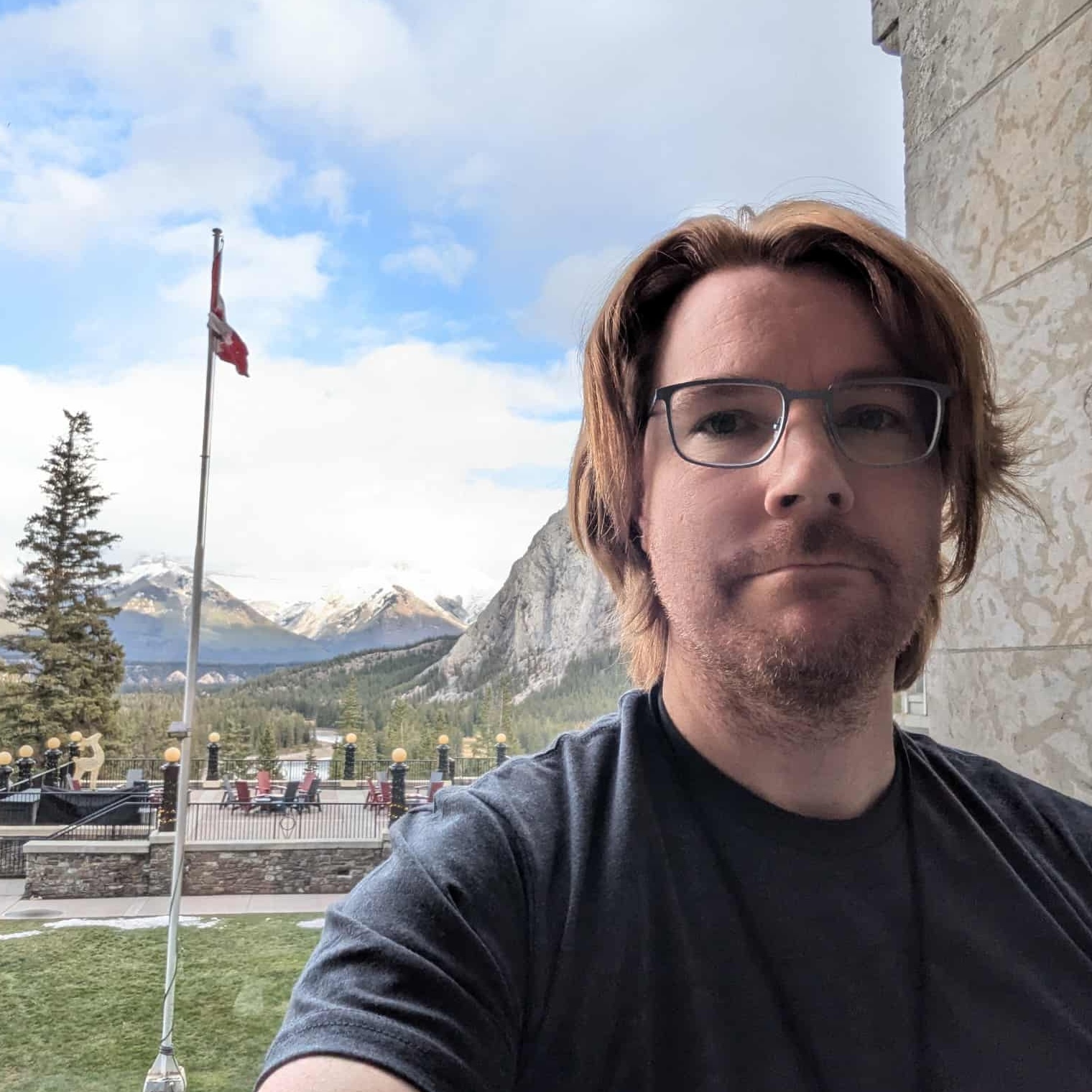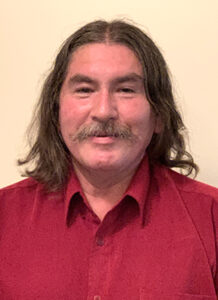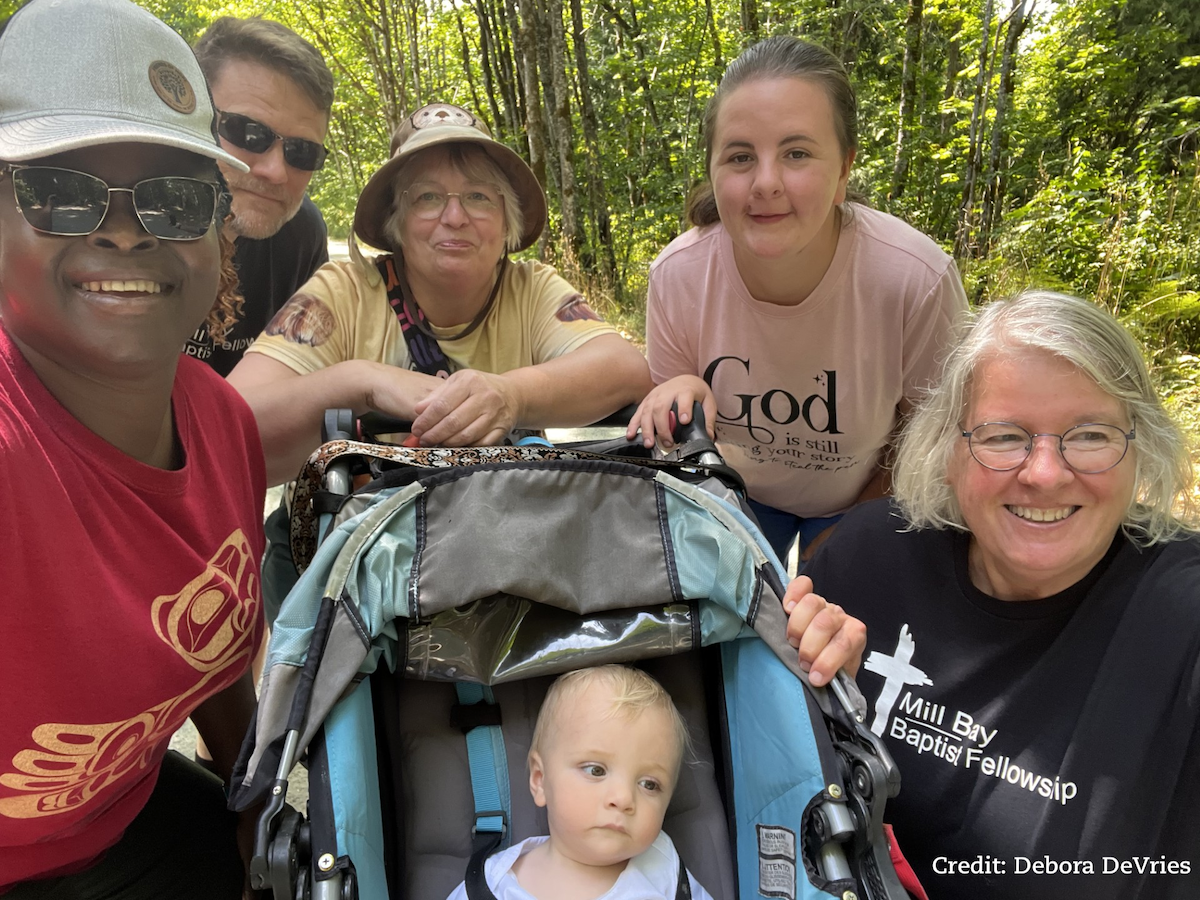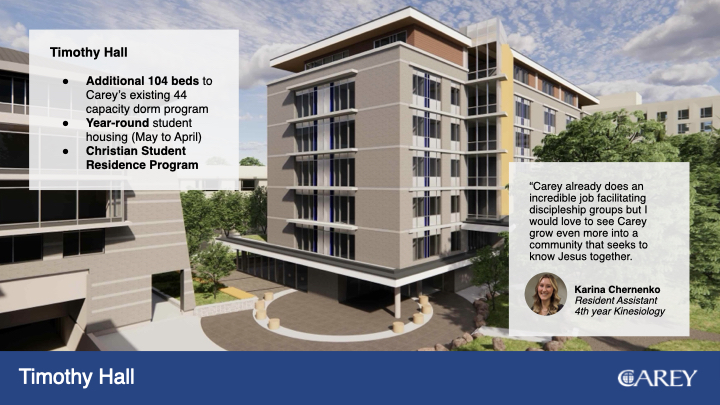Praying Together for Our Next Executive Minister
Dear CBWC Family,
As we begin the significant process of selecting our next Executive Minister, we want to ask for your prayer support! It is important that we walk this road together as a family of churches, and so we need your prayers for God’s wisdom and direction at every step. Pray for God to lead us in this search process and that He would be working on the heart of the individual that is right for this calling.
We also value your insight. If there are qualities, gifts, or kinds of leadership you believe will help our churches thrive in the years ahead, please share them with us. This is not about the past, but rather about seeking God’s heart for the future. You can send your thoughts to Shannon (Search Committee chair) at emsearchcommittee@cbwc.ca by September 15, 2025.
Thank you for standing with us in prayer, for speaking into this process, and for your faithful commitment to God’s mission among us.
With gratitude in Christ,
The CBWC Search Committee
Banff Pastors & Spouses Retreat–A Spouse’s Perspective
By Kyle Turner

I’ve had the pleasure of attending the CBWC Pastors and Spouses Conference a few times as a pastor’s spouse, and I have played bass on the worship team a couple times. This year, I have the added perspective of representing the BCY region as a CBWC board member.
The CBWC has been part of my life for a long time. First Baptist Church Kelowna has been my home church since I was born and, through my church, we’ve been part of the association for as long as I can remember—back when it was still the Baptist Union and church softball was a big deal.
Growing up, I never thought I’d be attending the pastors and spouses conference, but the Lord works in mysterious ways. Regardless of where I thought I’d be, my wife Carlee and I are so grateful for the opportunity to be sent to Banff by our church.
Banff is a place of fond memories for me. Carlee and I spent our honeymoon there almost 13 years ago and every time we return, just a month short of our anniversary, we are reminded of just how meaningful this mountain town is. Banff is a stunning place—there’s no better display of God’s creation, in my view, than the Canadian Rockies. And the Banff Springs Hotel is a masterpiece of architecture and engineering—a beautiful expression of the creativity and skill God has given humanity. As a carpenter and renovator, I have a unique respect for the craftsmanship it took to build this space. I could spend hours wandering its halls, and I often do.
We’re big fans of Banff, and staying at the Banff Springs is something we wouldn’t normally be able to do on our own—so we’re incredibly thankful to the CBWC for making that possible. It truly is a gift.
As a pastor’s spouse, I love the chance to take a week off to relax and explore. Even when I need to work remotely, it’s hard to complain when the “office” looks like this (see attached picture). Between disconnecting, getting a spa massage, reconnecting with CBWC friends and enjoying amazing food, it’s always refreshing and restoring.
I also appreciate the flexibility to step in and out of sessions as I like. As an introvert, I value my downtime, but I’ve really enjoyed the speakers in recent years. It’s great that the CBWC brings in experienced leaders with fresh perspectives to enrich the conference. While I look forward to future conferences with the CBWC, I am sad to hear that our “tenure” at Banff Springs is ending. I will treasure the memories made here and continue to look forward to “touring the castle” with my wife and daughters whenever we pass through Banff.
Registration is open for Banff 2025 until October 9. Sign up today at cbwc.ca/bpc
Humans of the CBWC–David Vandergucht
David Vandergucht is a member of Argyle Road Baptist Church in Regina, SK, and also serves on the CBWC board. David was asked to sit on our Marketplace Panel at Assembly in June and the following reflections stem from that conversation.

Hi, I’m David. I work in government as a water quality scientist. My work largely concerns understanding how water quality in the environment is changing over time and the role that humans play in that. At Assembly we were asked to discuss how we see our work fitting in with the Kingdom of God.
I’ve never considered my work a calling—maybe that’s part of my personality, or part of how I think God speaks to me—but I’ve never had a sense that God has specifically made or called me to do this work out of all the other things He could ask me to do.
I do see my work as important work that uses the talents and gifts that God has given me, and I thank Him for providing work that feels meaningful and supports my family. I see my work as my way to live out 1 Thessalonians 4:11-12:
“…and to make it your ambition to lead a quiet life: You should mind your own business and work with your hands, just as we told you, so that your daily life may win the respect of outsiders and so that you will not be dependent on anybody.”
I see this as a bit different than working in full time Christian ministry, where the language of calling seems to fit better in my mind.
While I don’t consider my work a calling, I have colleagues who do. Work that involves stewarding or caring for the environment seems to lend itself readily to a sense of calling even to those who don’t have a particular faith. I’ve found that scientists are often highly educated and motivated people who are happy to have meaningful work to do in the areas in which they’ve trained. This makes for very motivated and diligent colleagues and makes my work environment more encouraging because people care about what they are doing.
In my approach to work, I consider Colossians 3:23 as applicable:
“Whatever you do, work at it with all your heart, as working for the Lord, not for human masters…”
I consider doing my best as part of living out the Christian faith. I don’t think I stand out as especially motivated though, because my colleagues also find deep meaning in their work.
Increasingly, I realize that caring for the earth is one of the key tasks that God has charged humankind with, and so I find that the outcome of my work has value in God’s Kingdom. I also see it as a responsibility to treat my colleagues, and those we serve, well. I see that as part of my Kingdom work.
Government isn’t always an encouraging environment, but I try to do my best to be supportive as we work together to accomplish important tasks.
Truth & Reconciliation in Canada

Lyle Blackbird is the Pastor of CBWC Bethlehem Aboriginal Fellowship in Winnipeg, MB. Here is some of his story as published in their summer newsletter.
The Healing Journey
Luke 17:11-19 tells the story about a healing journey. It is about the 10 men with leprosy who were healed as they returned to the priest for verification of the cleansing.
Perhaps it was the same priest who exiled them in the first place.
Only one, a Samaritan, when he saw he was healed, turned around to thank Jesus. As part of their healing journey, they had to go back first. And one in particular had a personal experience. As he was willing to take the journey back, he noticed healing started to take place. It moved his heart, and he was thankful.
I am also on a healing journey. I come from a family of three generations of Residential School Survivors; my mother and her siblings, her parents and her grandparents. Some went to Portage la Prairie and the rest to the Birtle school. We lost three of our relatives at the residential schools. My home was broken as well with a lot of violence and alcohol. My younger brother was adopted out and I haven’t seen him since. My mother died a violent death when I was 17. Her coping mechanism from all the pain was medicating herself with alcohol.
I am still broken by all of this—it is called transgenerational trauma. Here is how it works. When all the students came out of the residential schools and started their own families, they brought all the negative environment of the schools that was within them into their homes. It was an explosion of collateral damage fueled by collateral violence. The things they were not willing or able to talk about or deal with got unleashed on their children.
I went back and visited the residential school that my mother and family attended. It is still standing, dilapidated and damaged. As I gazed upon the school, it conveyed a strong message that spoke the word “damages” to me. This word mirrored my personal and family damage inflicted upon us.
As I was leaving the grounds crossing a field, I couldn’t help thinking that perhaps I was walking on the burial places of my relatives. They were just children. As I continued to walk through the field, I saw little white butterflies all over the field everywhere which also spoke to me of the children.
For me, the way forward was the way back as well. I wasn’t able to go forward unless I went back, to try to reconcile all this. It has been said that it took generations to get to this point, and it’s going to take generations to come out of all this as well. This is why we have chosen to go back and address these issues with the Church, past and present, as well as harmful government policies that are still in effect today.
Reconciliation for me is a journey of healing for myself, my family and my church. We need to deal with this brokenness first, in order for any kind of reconciliation to take place.
The journey continues….
Pastor Lyle Blackbird
To read the full newsletter—including photos and inspiring personal responses to the question “What does reconciliation mean to you?”—click here.
AiM Global Food Stories
Feeding Hope One Step at a Time
All throughout the summer, groups have been gathering to get ‘Active in Mission.’ This fundraiser is all about Feeding Hope in our communities both locally and globally through food programming. So far this year we’ve raised over $62,000 in cooperation with Canadian Baptists across the country.
We celebrate with Mill Bay Baptist Fellowship on Vancouver Island, who surpassed their fundraising goal! On August 4, a small but committed group from MBBF walked 10 kilometres in support of Active in Mission.

“We enjoyed the time walking together,” says Mill Bay Pastor Tammy Klassen. “Shout out to retired CBM missionary Dorothy Sowden (not pictured) who did a lap of her block while still recovering from a hip replacement this spring. We ended the walk with a BBQ to celebrate.”
Half of the funds raised from Active in Mission are distributed to partner ministries in several nations around the globe through Canadian Baptist Ministries. The other half is distributed to Canadian Baptist churches. What all the funding recipients have in common is a mission to address food insecurity. In the past, CBWC churches have received grants to support ministries like neighbourhood pantries and community gardens.
To learn more about food security, check out this video from Canadian Foodgrains Bank: https://www.youtube.com/watch?v=8c5ZN7BseNA
While the time for summer fun may be drawing to a close, it’s not too late to participate in Active in Mission 2025! The donation page is still open: activeinmission.ca
Sabbatical Leave: The Sacred Rhythm of Rest

One of the many ministry resources that the CBWC provides to its churches and pastors is our Sabbatical Leave Plan. It was originally approved by Assembly motion over 40 years ago, at which time funds were transferred from the CBWC’s budget to a Trust Account set up for this purpose. Even though this benefit has been around for decades, we have seen an increase in participation over the last several years.
Both professional development and rest are essential to the well-being of our pastors. The Banff Pastors and Spouses Conference and the Regional Pastors Retreats are only two examples of how the CBWC assists in professional development. It is also the responsibility of the local church to ensure pieces are in place to promote the mental, physical, and spiritual wellbeing of its pastors—as part of ongoing pastoral care.
The creation story depicts the importance of Sabbath. Genesis 2:2 reads, “By the seventh day God had finished the work He had been doing; so on the seventh day He rested from all His work.” When we rest, we align ourselves with God’s sacred rhythm of rest. Sabbatical leave is not a vacation—it’s a time for spiritual reflection, prayer and reconnection with God. Rest is not a luxury—it is a necessity for sustainable life and ministry.
Following this pattern, a pastor may be eligible for Sabbatical Leave after seven (7) years of full-time service in the CBWC or its associated churches and following five (5) years in the particular situation where the sabbatical is approved.
Sabbatical leave is defined as any period of up to four months exclusive of vacation time. There are recognized benefits of pastors taking smaller sabbatical breaks more frequently (every second or third year) rather than waiting for a five-to-seven-year accumulation. Longer sabbaticals can increase the likelihood that a pastor may find it difficult to return to their former position; however, it also creates opportunities for other leaders to step up and may, in fact, strengthen the church’s leadership and resilience.
The Sabbatical Leave Plan is not considered a mandatory benefit. The application process starts with the local church contacting the CBWC office to set up a sabbatical account in the name of their pastor along with the first contribution. Contributions are received as follows: one half of one percent (.5%) of the pastor’s salary is deducted at source, matched by both the church and the CBWC for a total contribution of 1.5%. Contributions are held in a trust account in the name of the pastor, and each year, the CBWC adds accrued interest.
It is recommended that a pastor seek sabbatical approval by his/her church at least six months in advance of the proposed leave, provided this is a benefit agreed upon in the terms of employment. The CBWC requires a copy of a Board motion supporting the pastor’s sabbatical leave and approval by his/her Regional Minister as part of the approval process.
It is critically important that the church and the pastor agree in advance on how the funds held in the pastor’s trust account will be disbursed. Will the funds be sent to the pastor, the church, or will it be a combination of the two? The CBWC recommends that the church pay at least 67% of the pastor’s salary while away on sabbatical leave, so consideration must be made by the church for the cost of bringing in itinerant speakers if there are no other staff members or laypersons who can fill in. At the same time, if the pastor is away for an extended period on educational leave, it may be that funds are best designated to the pastor to pay for course fees and travel expenses if away from home. Good communication in advance is paramount, so no one is caught off guard once sabbatical leave has started. We now require Board Chairs to sign off on the Sabbatical Withdrawal Application Form to ensure all are in full agreement.
Pastoral ministry can be emotionally, physically and spiritually demanding as pastors often carry the burdens of their congregants and communities, especially during seasons of profound change. Without a plan in place for intentional rest and renewal, the overall health of an entire church may be affected. For more information on the CBWC’s Sabbatical Leave Plan, please visit our website at www.cbwc.ca/churchtools or reach out to your Regional Minister.
“And now, friends, we ask you to honor those leaders who work so hard for you, who have been given the responsibility of urging and guiding you along in your obedience. Overwhelm them with appreciation and love!” – Thessalonians 5:12-13 MSG
Carey Update on Timothy Hall

Timothy Hall, Carey Theological College’s second student residence building at the University of British Columbia, is now fully operational and fully occupied by 104 students. The new building offers a range of suites, from studios to three-bedroom apartments, along with thoughtfully designed shared amenity spaces. It significantly enhances our ability to accommodate students and provide them with a nurturing environment that fosters their academic and spiritual growth.
Carey is grateful for donors who made this dream a reality, to the glory of God. The building project was started during the pandemic, when many other building projects were suspended or stopped altogether. It is a testament to the vision, careful planning, and most importantly, the faith of Carey’s Board, staff and development professionals that the building stands completed today.
Looking ahead, I am excited about the growth that Timothy Hall will bring to our community. This new building will offer students enhanced opportunities to deepen their faith and academic knowledge in a vibrant Christian environment. Our vision for Timothy Hall is rooted in the words of 2 Timothy 2:2:
“And the things you have heard me say in the presence of many witnesses entrust to reliable people who will also be qualified to teach others.”
We see this residence as a place where students will be ministered to and built up, becoming strong Christian men and women who are capable and mature in their faith, prepared to teach and disciple others.
Timothy Hall will generate additional funds to support the growth of Carey Theological College. We remain committed to training pastors who can “preach the Word faithfully, in season and out of season; reproving, rebuking, and exhorting, with complete patience and teaching” (2 Timothy 4:2).
We praise God for the continued growth of Carey and the opportunity to equip the next generation of leaders for His Kingdom.
Rev. Dr. Colin Godwin
President, Carey Theological College
Copyright © 2025 Canadian Baptists of Western Canada, All rights reserved.
Making Connections is the monthly newsletter of the CBWC.
